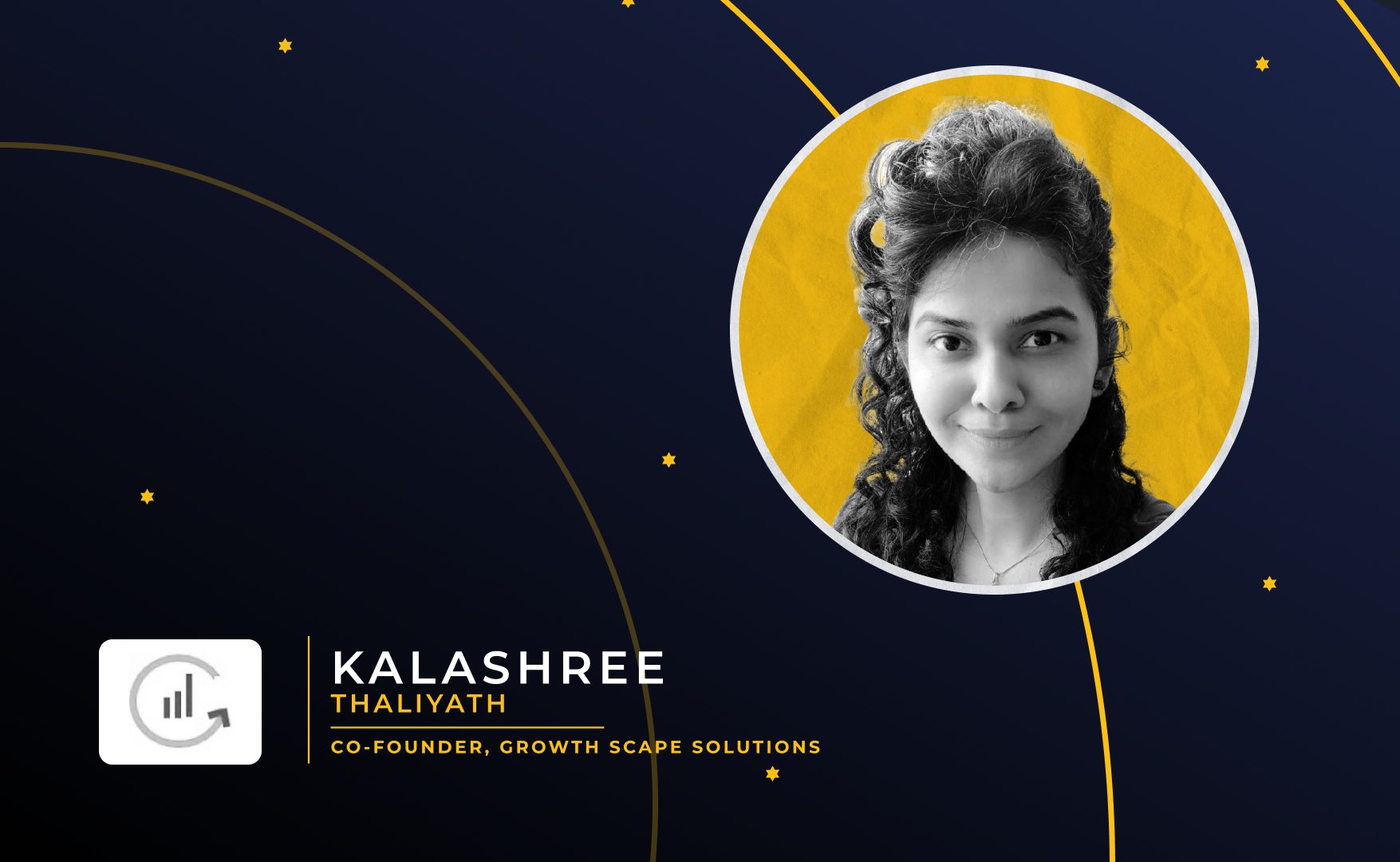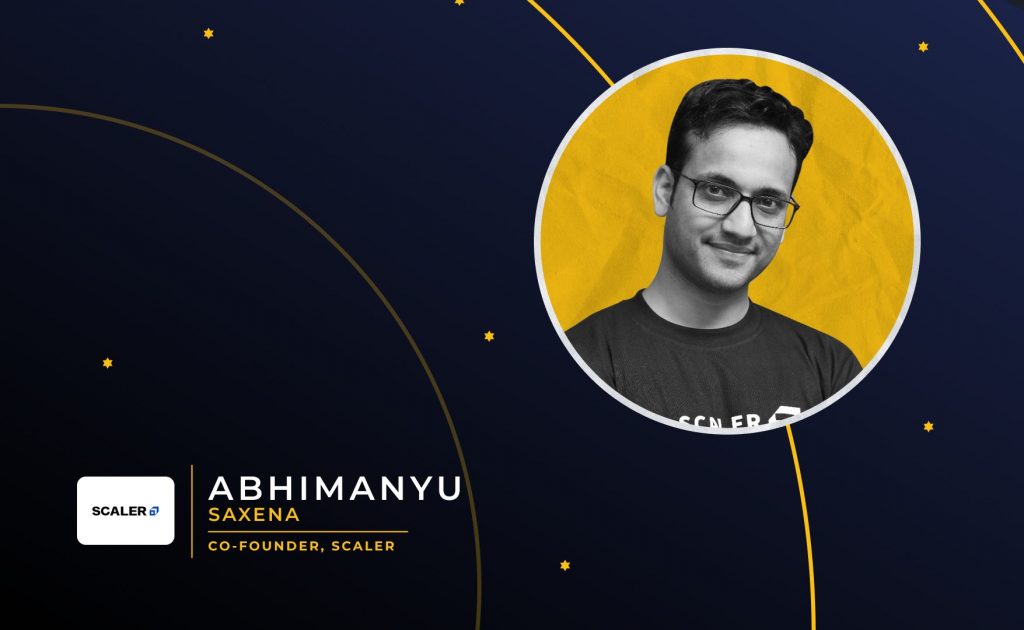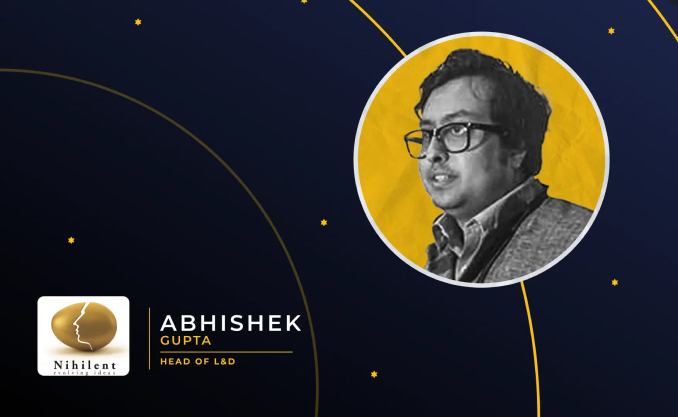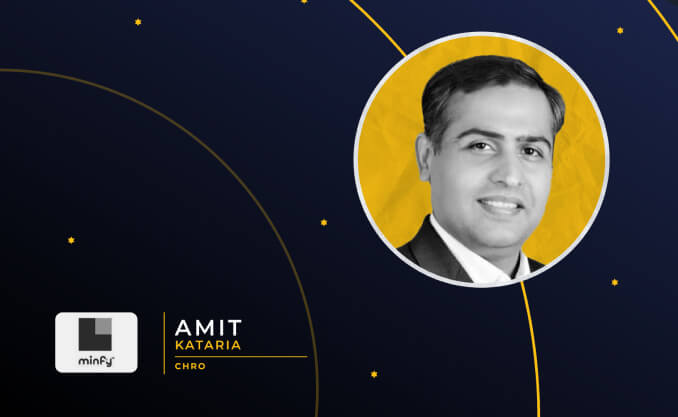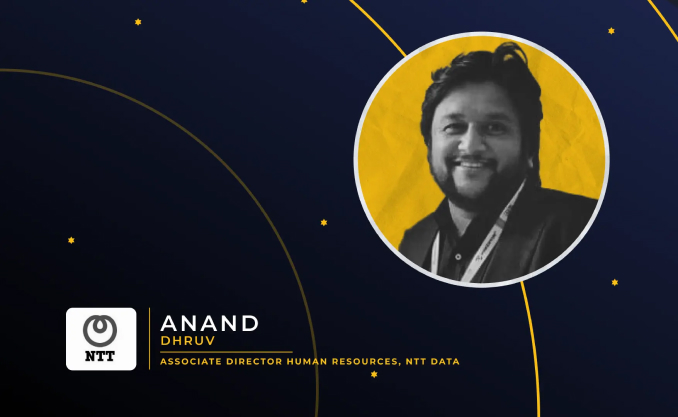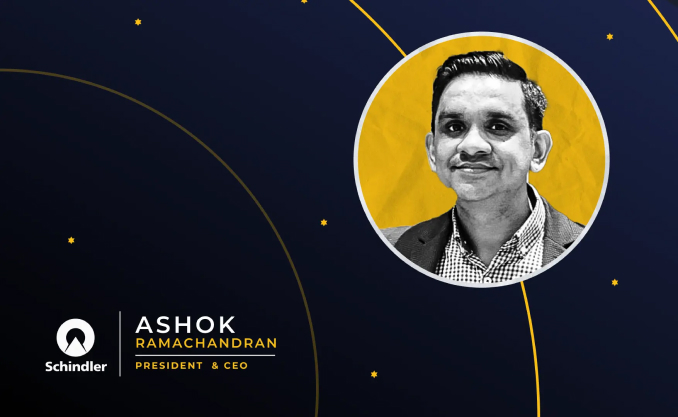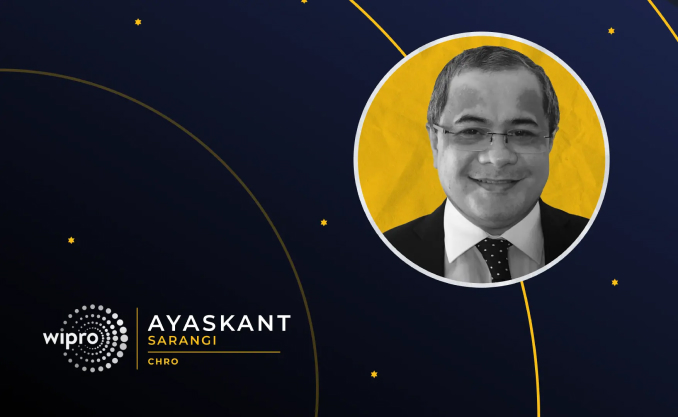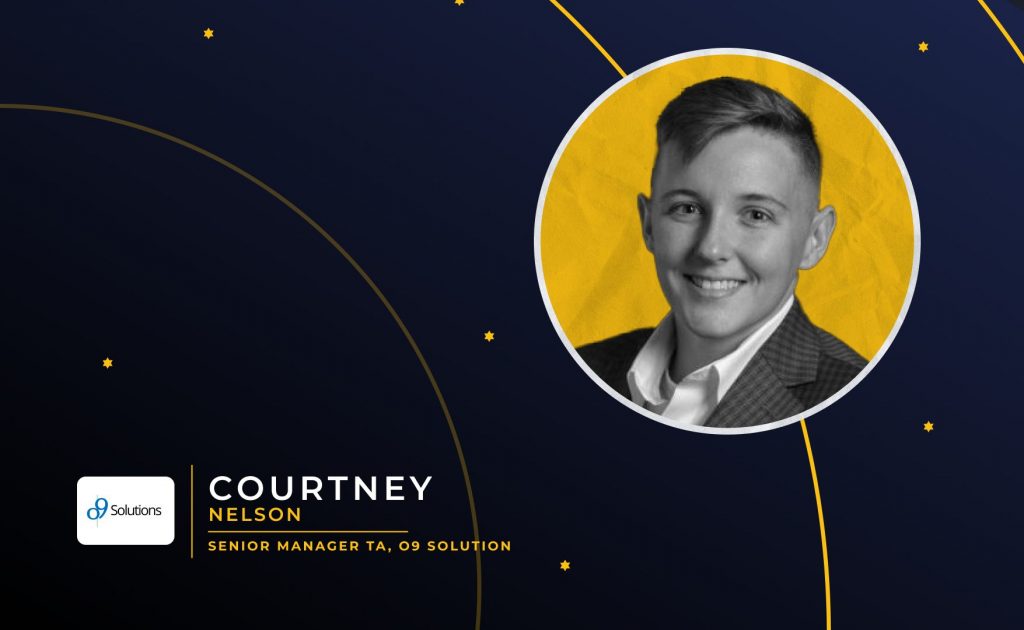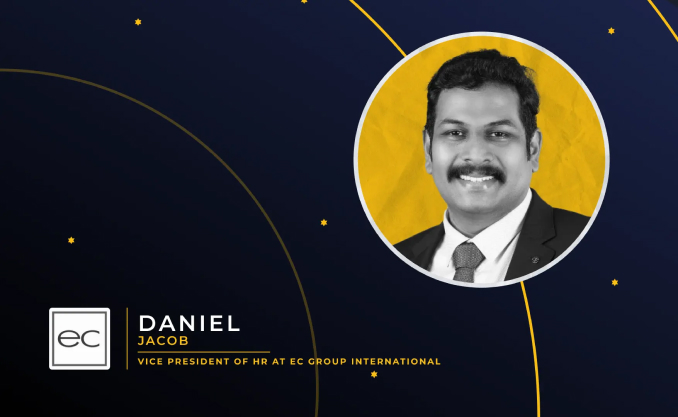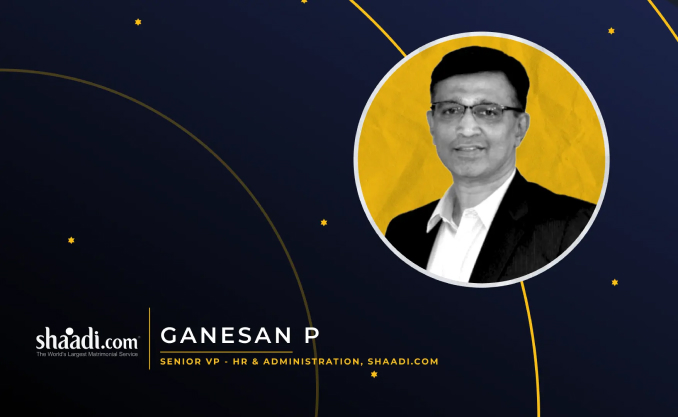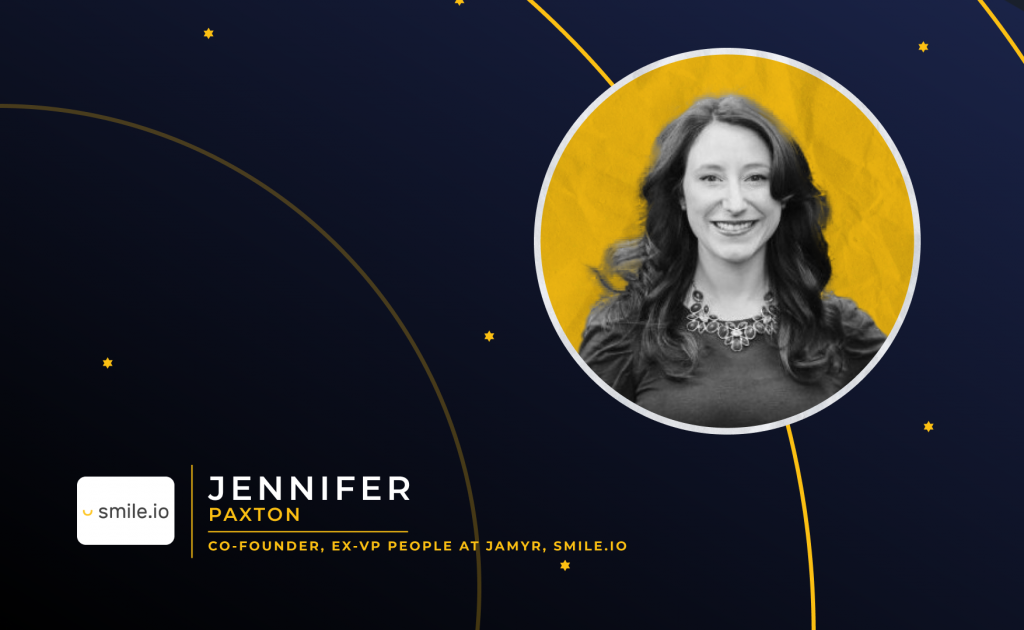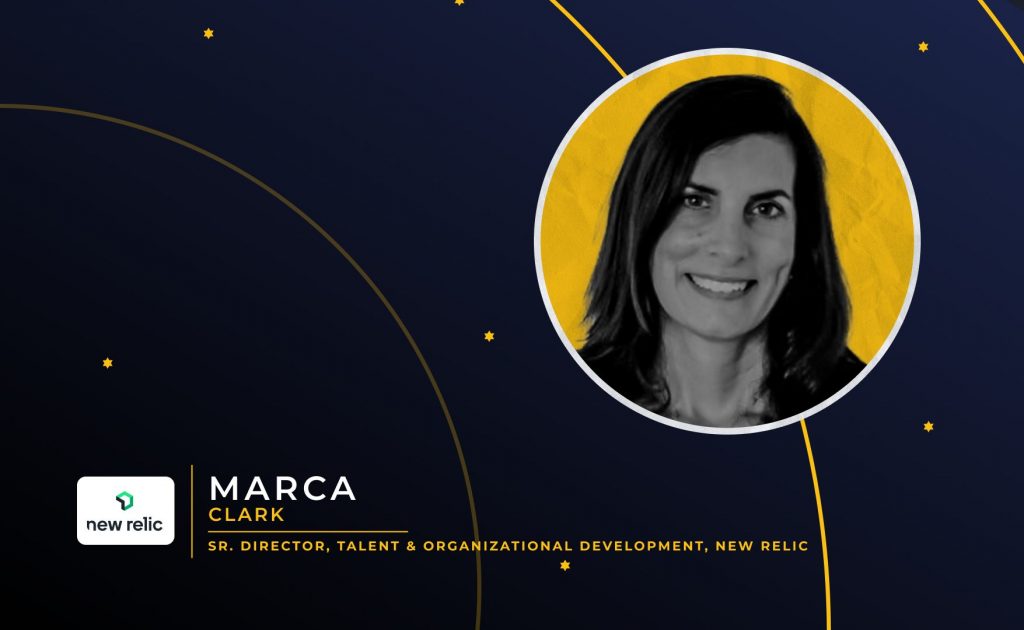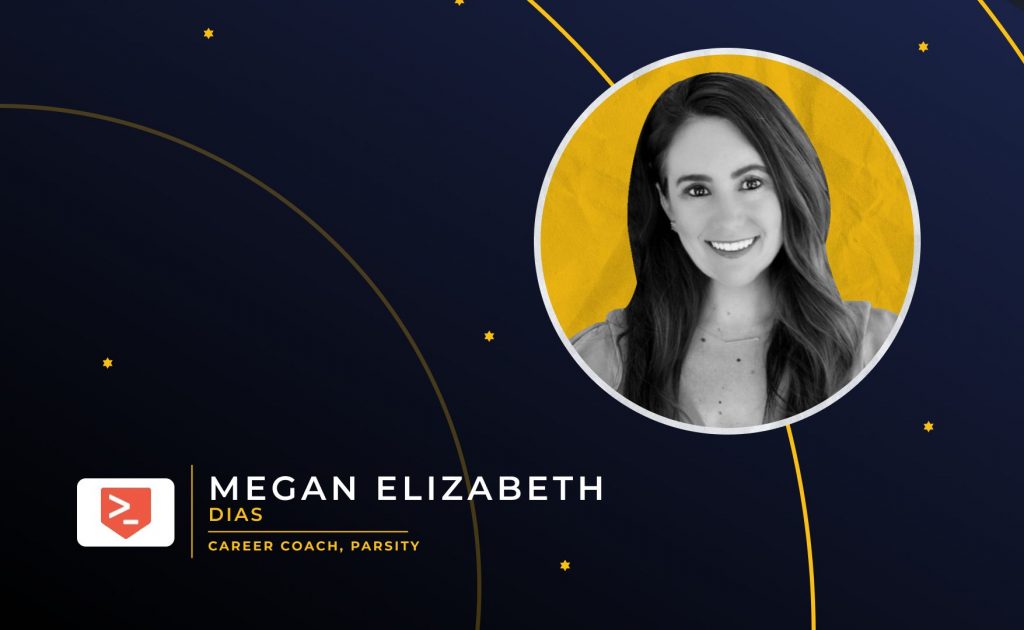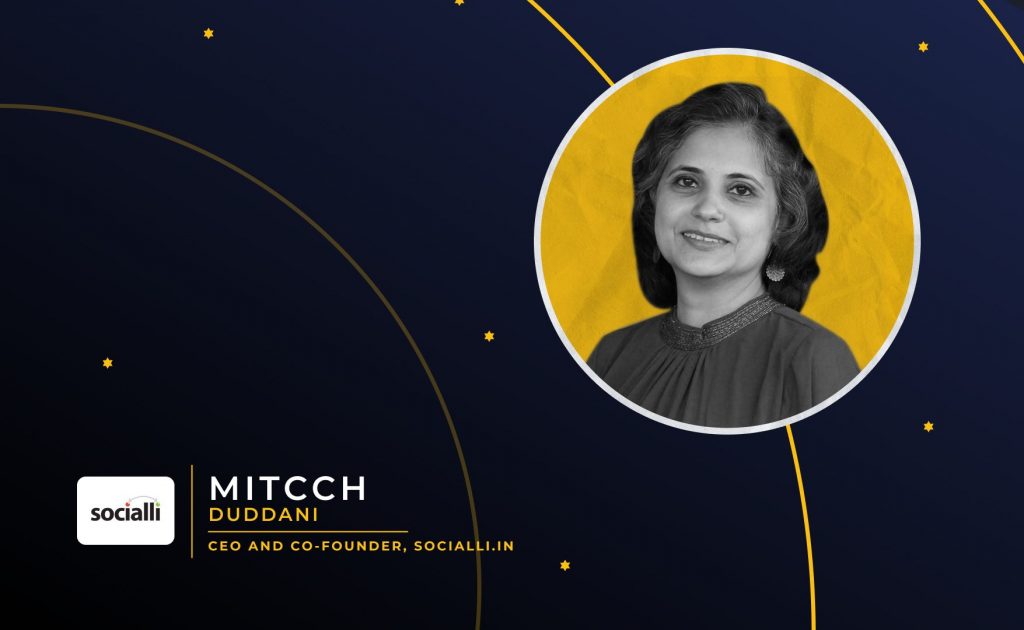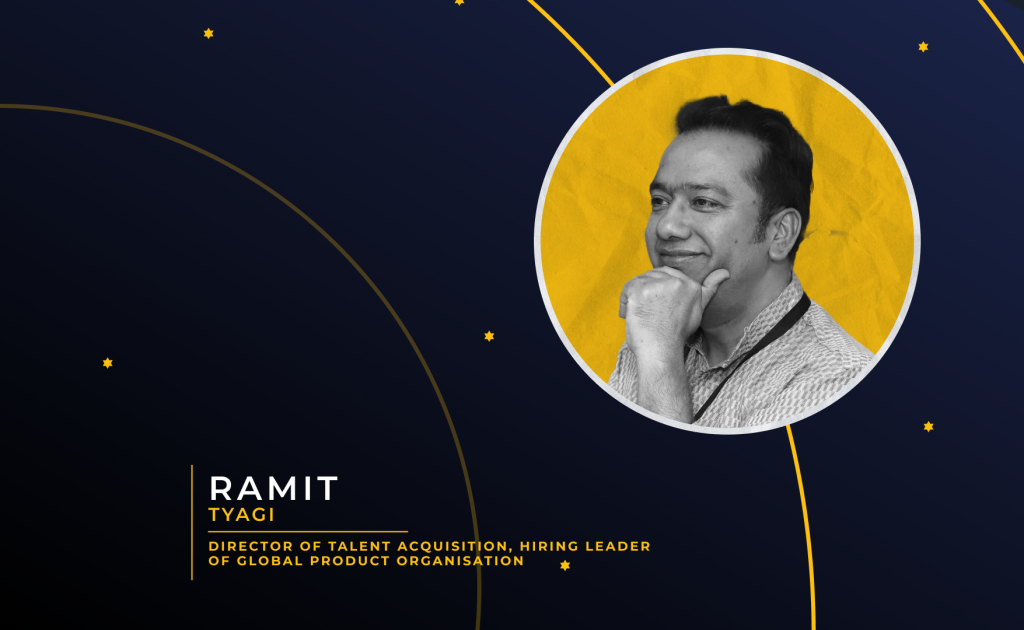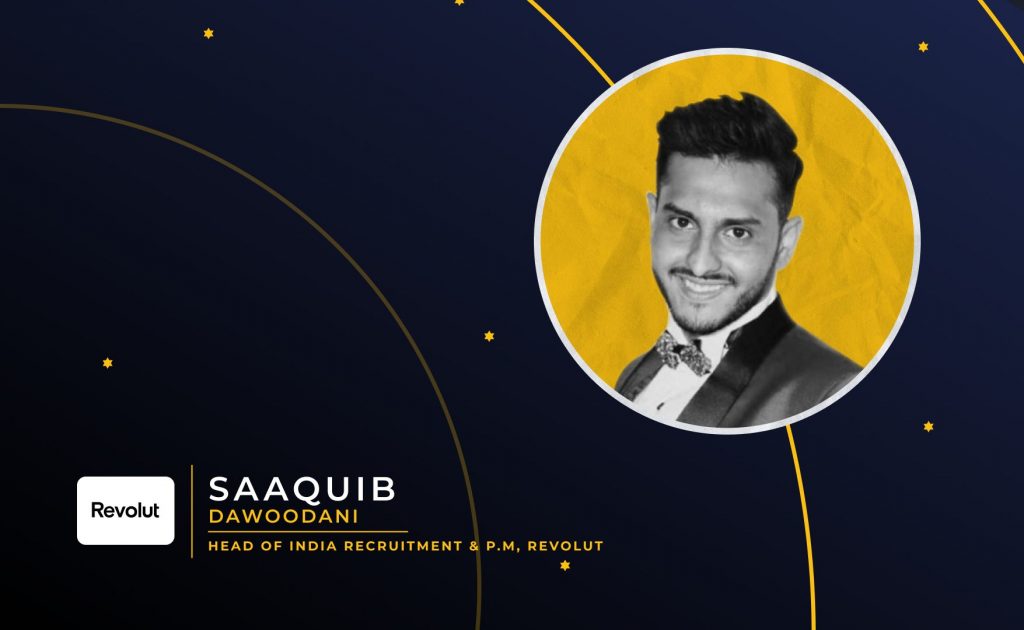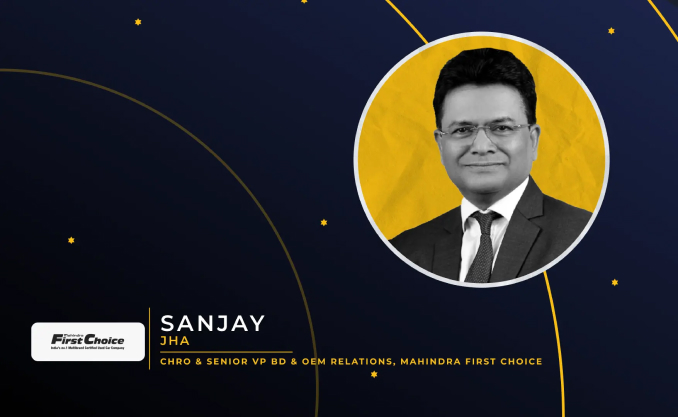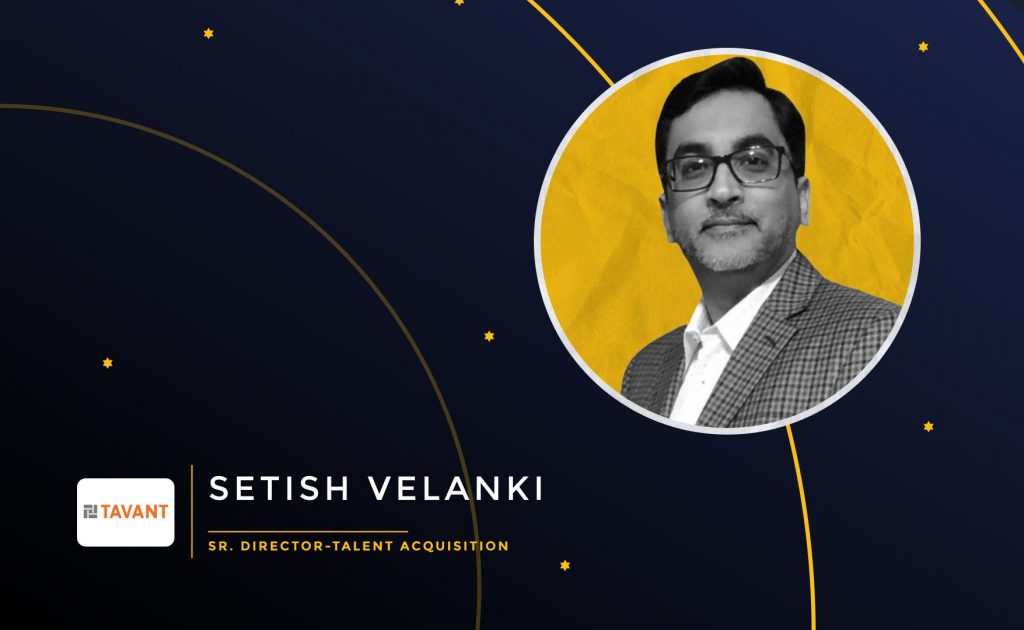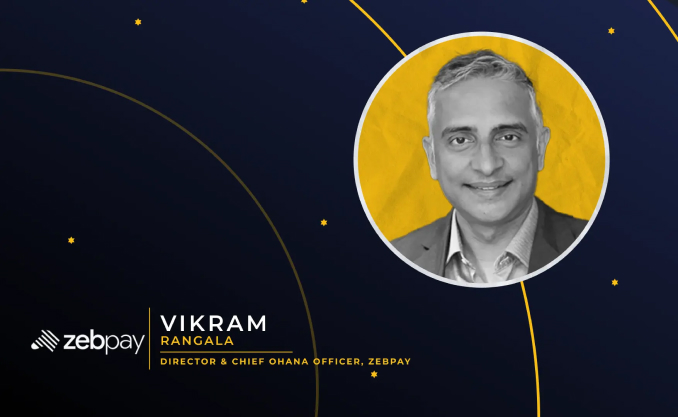Co-founder of Growth Scape Solutions LLP, Kalashree Thaliyath was born and brought up in Mumbai where she completed her BMS course. Soon after she did her HR course, she started her position in Delhi at an IT company for 2 years. She then moved to Pune and completed 10 years at Le Human Resources Solutions which then led to Intangles Lab where she was the head of HR!
According to Kalashree, the job portals and everything should start making a tab where work-from-home can be mentioned in the resume such that I'm looking for only work-from-home or work-from-office appointments. Also, earlier, medical insurance was one of the benefits, and candidates were eager to know more about its benefits.
With flexibility being the core of today’s work culture, Kalashree points out how working from somewhere is not a priority but how this can in turn increase the potential and productivity of the employee.
Table of contents
- About Kalashree Thaliyath
- Most motivating factor as an HR leader
- Difference between people strategy and hiring strategy
- Key changes in the recent years
- Keeping oneself motivated during hard times
- Measurement of performance with the help of metrics
- Effect on performance with the remote mode of work
- Initiatives that helped bring people together
- Changes to optimize the hiring process
- Advice to young HR professionals
Could you please provide a quick introduction about your journey, where you are, and the focus areas you have today?
My name is Kalashree Thaliyath. Currently, I am the co-founder of Growth Scape Solutions LLP and I was previously heading People’s strategy at Intangles Lab. I was born and brought up in Mumbai, the city of dreams, and I completed my entire education there. So, I wanted to do something different while I was doing my graduation. At that time, there was a course introduced called Bachelor of Management Studies. And so, I did the BMS, as it was called in the University. There I had these two subjects that I like very differently. One is advertising and one is HR.
I first explored advertising, and then since I didn’t like it that much, I went into HR. After working for two years for an IT company in a generalist profile, I did my post-graduation again from Mumbai University full-time. And then that’s how my journey started. I shifted to Pune in the same year, 2009. And Pune gave me a lot of amazing opportunities, one of them is working for this HR consultancy firm in which I worked with several clients, I mean, a lot of domains. The best part about being an HR is it’s not domain-specific. You can work in any industry for that matter. So, this amazing company allows you to work with 50+ clients across industries. I worked there for eleven years and now I’m at Growth Scape Solutions LLP co-founding my own company. My primary goal is to ensure that I nurture people’s profit and performance.
What is the most important factor that sort of motivates you to be an HR leader as a person? What gives you that energy back?
I think it allows me to change lines. And that makes me feel amazing because the kind of policies we advocate have a great impact on the overall well-being of employees. Also, we are responsible for the happiness quotient of all employees. So, keeping all members happy is a part of professional responsibility. So, at a personal level, it’s a very gratifying experience.
How does the people strategy differentiate from the hiring strategy, or does it overlap with the hiring strategy as well?
My people strategy means the entire gamut of HR. Right from recruiting what kind of people you want. So, it includes hiring; basically from hiring to retiring.
Everything comes under the people strategy because once there are people who come into the organization, we need to even induct them. For that matter, we need to ensure that they’re learning and growing in the organization. L&D comes into the picture after that. How they perform in the organization is another factor because for any organization to thrive, it’s only through performance.
So only the employees can perform in the organization. So, what does it take to build that performance culture that is also included in the same gamut? Also, once they start performing, whether we identify this kind of talent, how do we reward them? How do we recognize them? So the total reward strategy comes into being. Then, of course, the reason for which everyone does the job; the compensation and benefit comes under me. So, all of it is a part of people’s strategy. But how do we design this employee experience in this company? This is what we focus on.
What are some of the key changes that you are seeing right now compared to maybe a few years back?
Yes. So earlier, whenever we used to, especially during hiring, when we used to call candidates, it was, of course, a work from office only, unfortunately. But now you pick up the phone and you just explain about the job. The first thing is whether it’s work from home or work from the office. I think job portals and everything should start making a tab where work from home has just been mentioned in their resume and that I’m looking for only work from home or work from office appointments. So that’s a big shift.
Also, earlier, medical insurance was one of the benefits. You call a candidate first time and they want to know what kind of medical insurance people are you giving and who is covered in it. So that is another trend that I have seen. Apart from that, I think people are very conscious about not only their professional needs but also their family needs. Not only for the family but also for their personal needs. Earlier, we only used to talk about the job and what they are allowed to do.
Candidates want to know how flexible is the organization and accommodating that is because most of us are now living in a nuclear family.
So, it’s not just about where we go to work and what we do at work. It is also about having managed while working on the other things that are impacting our lives. I think these are the interesting trends that I’m seeing.
Insurance was just one of the benefits earlier. Now it is one of the deciding factors. And this happened in the first call, so people are becoming very health conscious, which is good, but also, they want these additional benefits now.
So how do you keep people motivated across maybe some parts of the year where they have to push themselves?
So honestly, we have a very flexible working culture. The approach we have adopted is to perform from anywhere, as long as you’re performing well.
No matter which environment you are working in as long as that environment makes you more productive and you’re meeting your goals and expectations, I think a flexible culture should work. It’s about performing at the end of the day.
For us, it is about how we understand some people prefer working at night. Because honestly, in our company especially, we have all types of people. It’s a database company. We also have a physical device. We have an analytics team, a technology team, a production team, a manufacturing team, and also a customer excellence team, which is more about service excellence and sales, and an after-sales team, so all of the work comes together. Now in such a dynamic environment, there is not a single rule that is going to apply to everyone. So, as I said, as long as you’re performing, you can perform from anywhere is the approach that we have adopted.
How do you measure the performance in terms of whether there is a system like OKR being set up, or any other metric?
We have something called OKR. What we have done is annually we have something called an annual business plan, which is ABP, as we call it in this meeting. We plan for the whole year at a company level and then we break it down at a functional or a department level. Those are then again populated at individual levels as KRIs and OKRs.
Every function has its objectives which are of course aligned to the company objectives. Based on that, then individual key results are also set and then they are evaluated every quarter. So typically, what happens is performance evaluation in many companies happens at the end of the year when everything is over. It’s like a postmortem, the whole year is gone and then you’d like to find out what happened over the year. Here we have a little proactive approach.
But in every quarter, we give something called a performance achievements quote to a person. It’s like a unit test and then the final exam is also there. So, these are like unit tests wherein people score, they understand where they stand as of now and what they need to do to improve and go ahead in the next quarter.
Apart from that, of course, being a technology company, innovation is at the heart of it. We have a weightage for innovation. We have weightage for self-initiatives taken by the employees, and what key achievements they have. We of course promote high-performance culture and organization. Hence, all of that add to the performance of people and being productive.
As an HR leader, did you feel that the performance of people is higher in person or it's stagnating now remotely?
Different people are more productive in different types of environments. So, it depends on the job role.
If your job role is such that you have a lot of internal and external customers and you have to coordinate with a lot of people, communication and collaboration are the key factors that drive your job. In that case, of course, an office environment would be helpful because working from home, you don’t know whether a person is available, or not available, and you cannot connect as you can connect face to face.
And in a working environment, a lot of other things also happen. You learn from others’ responses, for example, especially in customer service roles. However, certain roles are more creative, and you would prefer to be in your zone while working such that you can deliver better, focus better, and concentrate better because otherwise, office is more of a distraction. When people come, they make noise. Because most of the offices now are open offices and not those departments and cubicles we had earlier.
Employees can now work from anywhere. But of course, from an organizational point of view, through this work-from-home model, I think we are facing three major challenges, especially as an HR, as I can sense it.
First is cultivating a sense of belongingness.
So, when you are working, when you come every day, get ready, come to an office every day in a physical environment, you have that relationship with your colleagues, you have your jokes, you miss out on all that is what I think. That is what makes an organization successful. The sense of belongingness, the kind of collaboration, the kind of team spirit that people have. So, it’s fun working with people. It does not make a difference whether you work from A company or B company, you’re just doing your job.
Things like building trust and commitment become another challenge for us because at the end of the day it will not matter the entire experience or how an organization is working to build a culture that gets evaporated when they are out of office.
Hence communication and collaboration also get affected is what I think. So, these are some of the disadvantages. However, I think a lot of working mothers like me being a mother, I know how it is to drive both together. Because we always talk about equality and of course it has to be a part of the job also. Just because I’m a woman and I have other responsibilities, it shouldn’t be that I am not focusing equally on both. Hence, there is no gender bias.
We talk about opportunities and equality so it has to apply to each other in every sense. But I think a lot of young mothers especially are able to still carry on with their careers irrespectively. So that is something wonderful that I think has also come out of this work-from-home model. If you have any kind of limitation due to which you cannot go to a certain place to work, the work comes to you.
I think they’re all types of people and we can accommodate them. This is a diverse thing. There are a lot of options that are open to us nowadays. We don’t think just in a yes or no bracket anymore. I think there are immense possibilities for each model, and depending on the role, it will work for specific. As long as a person, a professional, is working in the right spirit, I think everything falls in place.
Any interesting initiative that you have taken that you think helped bring people together when they are joining from different parts of the country?
We have something called a monthly fun time in which all our customers have these games and monthly birthday celebrations and work annex releases and things like that. This is a big break because a lot of people were working because of the first wave. We thought it was just a short phase and we would be back in the office soon, however, this went on for a long and hence we made it a thing to do these fun meetings even on calls. And that was all about fun.
Like, we had a talent show, which was an online thing. People were playing guitar, they were singing songs, and they were reading out their poems. Anything that you wanted to do. Then I remember in January again, the same thing happened. That time we had a patriotic thing, right? We asked questions about India and how you know. And there was quite an active participation. And we were all surprised. We always have this connection.
I think as an HR, if I lose that connection with people, it becomes very difficult. So, I ensured that I spoke to each team.
I also joined the company when the pandemic was really in a very bad situation. But at the same time, I wanted to make sure I meet and talk to every person. So, I had to organize these calls. I used to just chit-chat. I think that is the best way to go ahead. There’s no double agenda. I introduced myself and I wanted to know them as people. And that worked a lot in my favor that time, I guess, because when a new person comes to an organization, especially in HR, everyone is like, oh, my God, now what’s going to happen? What kind of changes is going to be brought into this organization? But that one-on-one feedback helped me connect with a lot of people and just talk.
If I have that connection and that fun element, I think it should not be compromised at any time, even if you see it in schools. I mean, every school went online, and so what happened? Every kid had to do studies and do everything except the fun. Everything else kept happening. If you lose out on that, it’s not going to help because any environment is more productive, not only from a productive place but, for us, among the concepts, it’s not a workplace. It’s a happy place where you would like to go and enjoy and meet and perform.
And by perform, I don’t mean just work on a task or how you’re performing on a task. Performance for us is like a dance performance or singing performance, a display of talents. So that is the way we see it. We all are so talented in different ways and different directions and different things that we need to have some platform to display all these talents.
A lot of people in our organization are engineers and they love engineering. We came up with this initiative called Project Loomshot during the Pandemic, in which we asked them to give us an idea. It’s like a Loomshot idea. And let’s form teams and see whether your idea is accepted and just walk towards it and make it happen.
Because you are sitting at home thinking of all kinds of uncertainty because that time was really bad. You don’t know who is going to be in a lot of uncertainty. So, we tried to change that into some creative thought and we got amazing responses, out of which many got converted into projects. And we are still working on this project. So, I think initiatives like these will help the employees as well as everyone around to think. And as I said, make it a happy place and not just a workplace.
So, I think that fun is a part of every relationship and it is something that I personally also claim to be one of our cultural pillars. We have six pillars of culture and one of them is definitely to make work fun.
The hiring is going through a very different phase now. What are the few changes that you are making in the hiring process that is making it more optimized so that you can hire in time?
What we try to do is understand not only candidates from a technical or knowledge perspective but also if they are a cultural fit and whether they have the behavioral competence that is required for these roles. We have something called a psychometric test, which these people go through, and through that, we understand who is apt for us and who is not. So, the focus is that every job has a particular competency required, behavioral, technical, et cetera.
Through these tests, especially psychometric tests, we try to understand the behavioral characteristics of a person. What motivates a person? What are the needs of this person? So, through that, we can easily filter candidates. Also, predictive analysis. That’s what our company is also into. So, we use a lot of evaluation which is more objective actually, and that also helps us out. And then at times, we try gamification on certain things so we give them some problems but we ask them to give a presentation on a preset agenda. That’s how we are trying to understand if a person can do so.
To me, more than an interview, a job sample makes a lot of sense, especially when it comes to technical skills. Instead of me interviewing and trying to evaluate whether this person can do or not do a certain task, there must be assignments that allow me to assess and evaluate. Once we give this assignment, whoever comes back also shows us the interest level because if there is a job there are a lot of applicants, but who is the right one can be found through these assignments.
Also, we try to assist and there are many, as you know, who will not do the assignments so they’re not that serious about the job. So, we have a selection strategy and we have a rejection strategy. So, once we use the rejection strategy and based on that whoever clears it, then we go to the selection strategy and that’s how we run it.
One piece of advice for people who are joining the HR field now?
I think one of the most important things for HR is being human in your decisions.
Because what happens in any organization, big or small, there might be some incidents that are power-oriented, that might be a little politically influenced.
I think we need to ensure that as HR we are also the conscience keeper of the organization. And many times, it’s not about the money, it’s about the message, the message that you are giving to the people based on which people feel valued or they feel undervalued or they leave the organization.
So irrespective of whether they stay or they leave the organization, an employee in your organization should be very proud to work in your organization from a values perspective, from a product development perspective, that pride should not go low even if they stay with you or not, they’re still the evangelist of your product and your company because of things like that spread through word of mouth.
And most importantly, of course, it’s the right thing to do. You need to stand for people who cannot stand for themselves or stand for decisions that are in the best interest of the employee as well as the organization. I think that plays a very important role and more than any technical knowledge or anything else or any degree that can help you. It takes a lot of guts to do that.

